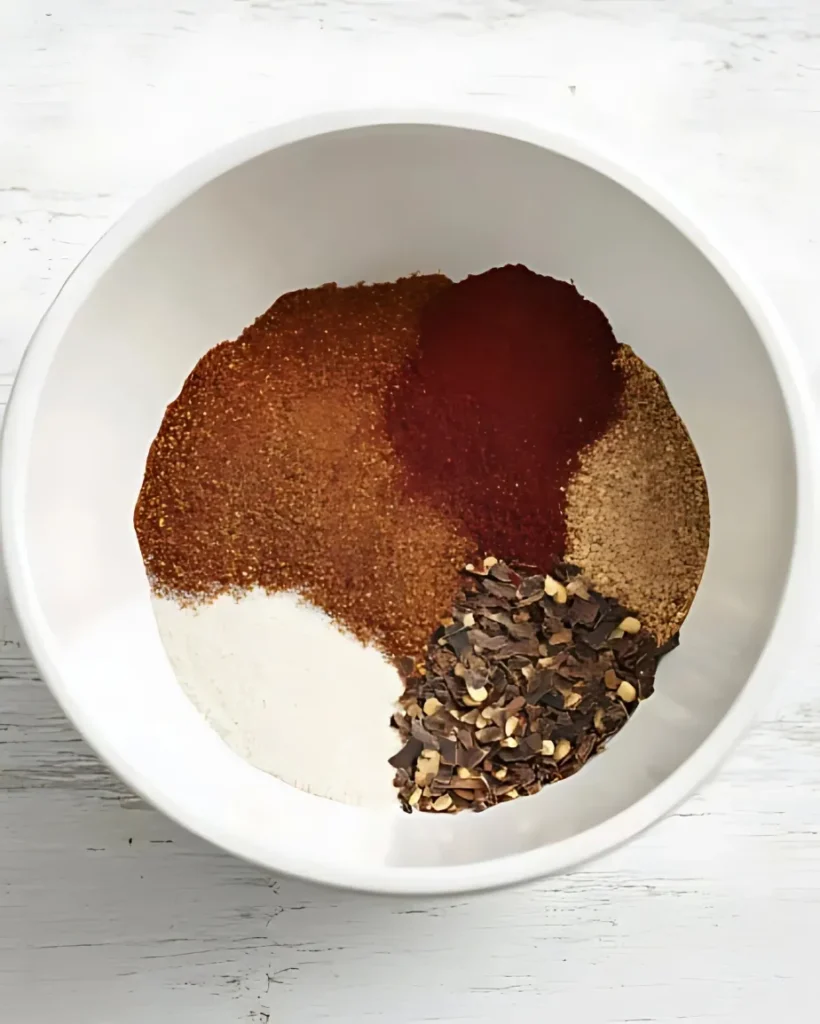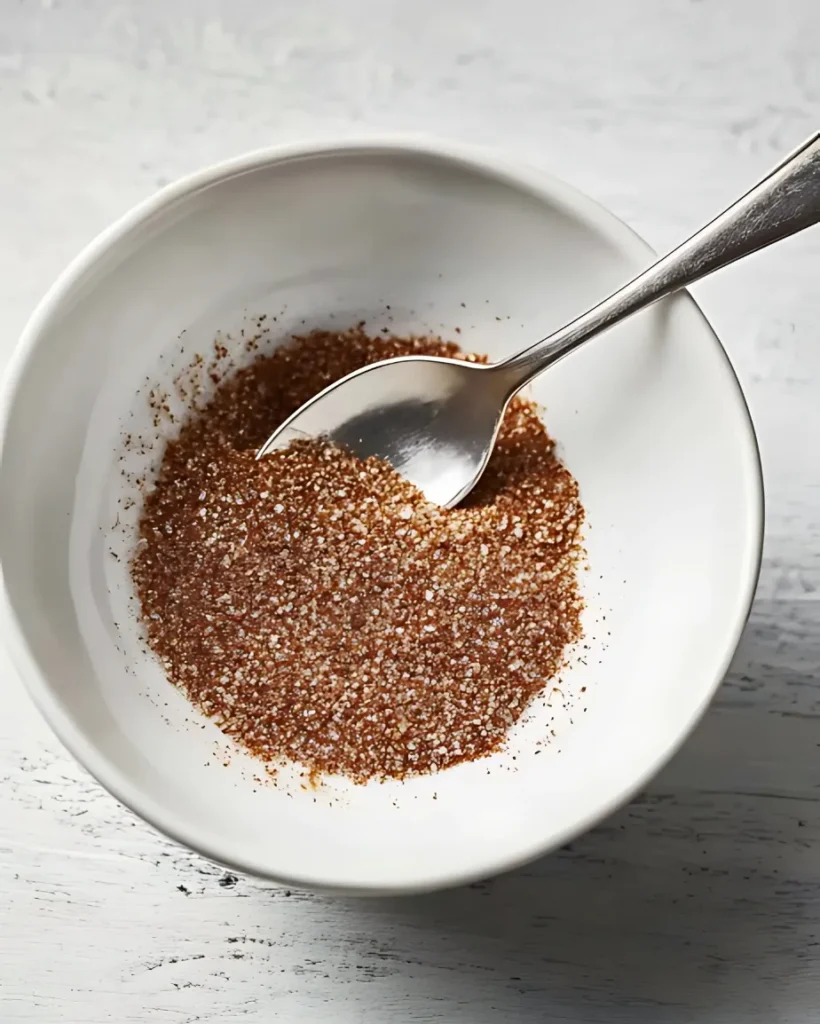Imagine a sizzling grill and the smell of perfectly seasoned meat. The air is filled with the scent of a burger that tastes like it’s from a fancy restaurant. That’s what homemade burger seasoning can do for you.
Creating your own burger spice blend is more than just mixing ingredients. It’s about making a flavor experience. With DIY burger seasoning, you can turn ordinary ground beef into a masterpiece. Your friends and family will be asking for your secret recipe.
Whether you love grilling on weekends or want to impress at home, homemade burger seasoning is key. Each spice adds depth and character to your burgers. It’s a way to make every meal special.
Key Takeaways
- Homemade burger seasoning offers complete flavor control
- Custom spice blends beat store-bought alternatives
- Fresh ingredients make a significant taste difference
- DIY seasonings are cost-effective and preservative-free
- Personal spice blends create unique burger experiences
Why Make Your Own Burger Seasoning
Making your own burger seasoning turns a simple meal into a special treat. By creating your own spice mix, you open up a world of flavors. This is something store-bought seasonings can’t offer.
The magic of Homemade burger seasoning is more than just taste. It’s about the reasons to mix your own spices.
Benefits of Custom Spice Blends
Creating your own burger seasoning has many benefits:
- Personalize flavor profiles to match your exact taste preferences
- Adjust salt and spice levels for dietary needs
- Experiment with unique ingredient combinations
Cost-Effectiveness of Homemade Seasonings
Homemade spice blends save money. Buying spices in bulk and making your own mix cuts down on costs. A single investment in quality spices becomes multiple delicious seasoning blends.
Control Over Ingredients and Flavors
With custom burger seasoning, you choose every ingredient. No hidden additives or preservatives. Just pure, fresh flavors that fit your taste perfectly. You control the quality, intensity, and nutrition of your burger’s seasoning.
Essential Ingredients for Homemade Burger Seasoning
Making the perfect burger seasoning is all about the right spices. These spices can turn a simple burger into a dish that wows everyone. It’s all about the mix of herbs and spices.

The base of great burger seasoning includes a few key ingredients:
- Salt – The most critical flavor enhancer
- Black pepper – Adds sharp, aromatic heat
- Garlic powder – Provides deep, savory undertones
- Onion powder – Brings subtle sweetness
You can also add more burger seasoning ingredients for more flavor. Smoked paprika adds a smoky taste. Dried herbs like thyme or oregano add earthy notes.
Want to try something new? Here are some optional spices:
- Cumin – Adds warm, slightly nutty flavor
- Chili powder – Introduces mild heat
- Dried mustard – Provides tangy complexity
- Celery salt – Brings subtle vegetable undertones
The secret to a great seasoning mix is finding the right balance. It’s all about what you like. Feel free to mix and match to create your own special seasoning.
Perfect Ratios and Measurements for Burger Spices
Making the perfect burger seasoning blend needs precision and attention to detail. Your homemade spice mix can turn a simple patty into a culinary masterpiece. The right seasoning measurements are key.
Begin with a basic mix that balances flavors and intensities. A standard batch might include:
- 2 tablespoons salt
- 1 tablespoon black pepper
- 1 teaspoon garlic powder
- 1 teaspoon onion powder
- 1/2 teaspoon paprika
Base Seasoning Measurements
Knowing seasoning measurements is vital for consistent flavor. Chefs suggest using about 1 tablespoon of seasoning per pound of ground meat. This ensures each bite is perfectly seasoned without overpowering the beef.
Adjusting Portions for Batch Size
To scale your burger spice ratios, just do some simple math. For bigger batches, multiply your base measurements. Pro tip: Always mix dry ingredients well before storing to ensure even spice distribution.
Storage and Shelf Life Tips
Proper spice blend storage is crucial for keeping flavors strong. Keep your homemade seasoning in an airtight container, away from heat and sunlight. Most spice blends stay fresh for 3-6 months when stored right.
How to Apply Your Homemade Burger Seasoning
Mastering burger seasoning is an art that can make your grilling better. The right way to add seasoning can turn a simple burger into a flavorful feast. Learning how to infuse flavors will help you make burgers that taste like they’re from a restaurant.
There are two main ways to season:
- Pre-mixing method: Mix your seasoning into the meat before making patties. This way, spices spread evenly and go deep into the meat.
- Surface application method: Sprinkle seasoning on the burger just before cooking. This method gives a tasty crust and a strong first taste.
Professional chefs share some top tips for seasoning burgers:
- Use about 1 teaspoon of seasoning per pound of meat
- Mix seasonings gently to avoid overworking the meat
- Let seasoned patties rest for 15-20 minutes before cooking
- Don’t add salt too early to keep the meat moist
The timing of when you add seasoning affects your burger’s taste and texture. Pre-mixing lets flavors blend, while surface application gives a crispy, flavorful outside. Try both ways to find your favorite taste.
Classic vs. Gourmet Burger Seasoning Variations
Your burger seasoning journey can turn a simple patty into a culinary masterpiece. Classic seasoning gives a solid base, but gourmet blends offer exciting new tastes.

When making a classic burger seasoning, cooks usually stick to traditional American flavors. These blends aim for simplicity and balance.
Traditional American Blend
The quintessential American burger seasoning includes:
- Kosher salt
- Black pepper
- Garlic powder
- Onion powder
International Flavor Profiles
For a more adventurous taste, try international burger flavors. These global spice mixes can spice up your grilling:
- Mediterranean: Oregano, rosemary, thyme
- Asian-inspired: Ginger, five-spice powder, white pepper
- Latin American: Cumin, chili powder, smoked paprika
Specialty Mixed Combinations
For gourmet burger blends, mix in unique ingredients. Try adding ground coffee, cocoa powder, or smoky chipotle for a bold taste.
The secret to great burger seasoning is finding the right balance. Let the meat’s natural flavor stand out.
Common Mistakes to Avoid When Seasoning Burgers
Mastering burger seasoning means knowing what to avoid. Over-seasoning is a big mistake that can ruin the taste. You want to enhance the beef’s flavor, not hide it.
Timing is everything when seasoning burgers. Too much salt too soon can make them dry. Learn how to season just right to keep them juicy and flavorful. Chefs say to season just before cooking for the best taste and texture.
Even seasoning is key. Uneven salt can make some bites too salty and others bland. Mix your seasonings well to avoid clumps. Use your hands to blend them gently for even flavor.
Be careful not to overdo it with seasonings. Start with a little and add more as needed. Taste and adjust to avoid overpowering the burger’s natural taste.
FAQ
How long can I store homemade burger seasoning?
You can store homemade burger seasoning in an airtight container for 3-6 months. For the best taste, use it within 4 months. Always check for moisture or clumps before using.
Can I use burger seasoning on other meats?
Yes! Your homemade burger seasoning is great on steaks, chicken, pork chops, and veggies. It’s perfect for different meats and cooking ways.
Is homemade seasoning healthier than store-bought?
Homemade seasoning lets you pick what goes in it. You avoid additives, preservatives, and too much salt found in store blends. You can make it fit your diet needs.
How much seasoning should I use per pound of meat?
Use 1-2 teaspoons of seasoning per pound of ground meat. Start with a little and add more if needed. Remember, you can’t take seasoning out once it’s mixed.
Can I make burger seasoning without salt?
Yes, you can make a salt-free blend. Use garlic powder, onion powder, black pepper, paprika, and dried herbs. It’s good for low-sodium diets.
How do I prevent my burger seasoning from being too spicy?
Use mild spices like paprika instead of hot ones. Add small amounts of hot spices slowly. You can always add more heat, but it’s hard to take it away.
Can I make burger seasoning in large batches?
Yes! Making big batches saves money and is easy. Just make sure to store it in an airtight container in a cool, dark place to keep it fresh.
Are there gluten-free burger seasoning options?
Most spices are naturally gluten-free. But, always check the labels. If you’re very sensitive, buy certified gluten-free spices to avoid cross-contamination.


3 thoughts on “Homemade burger seasoning”